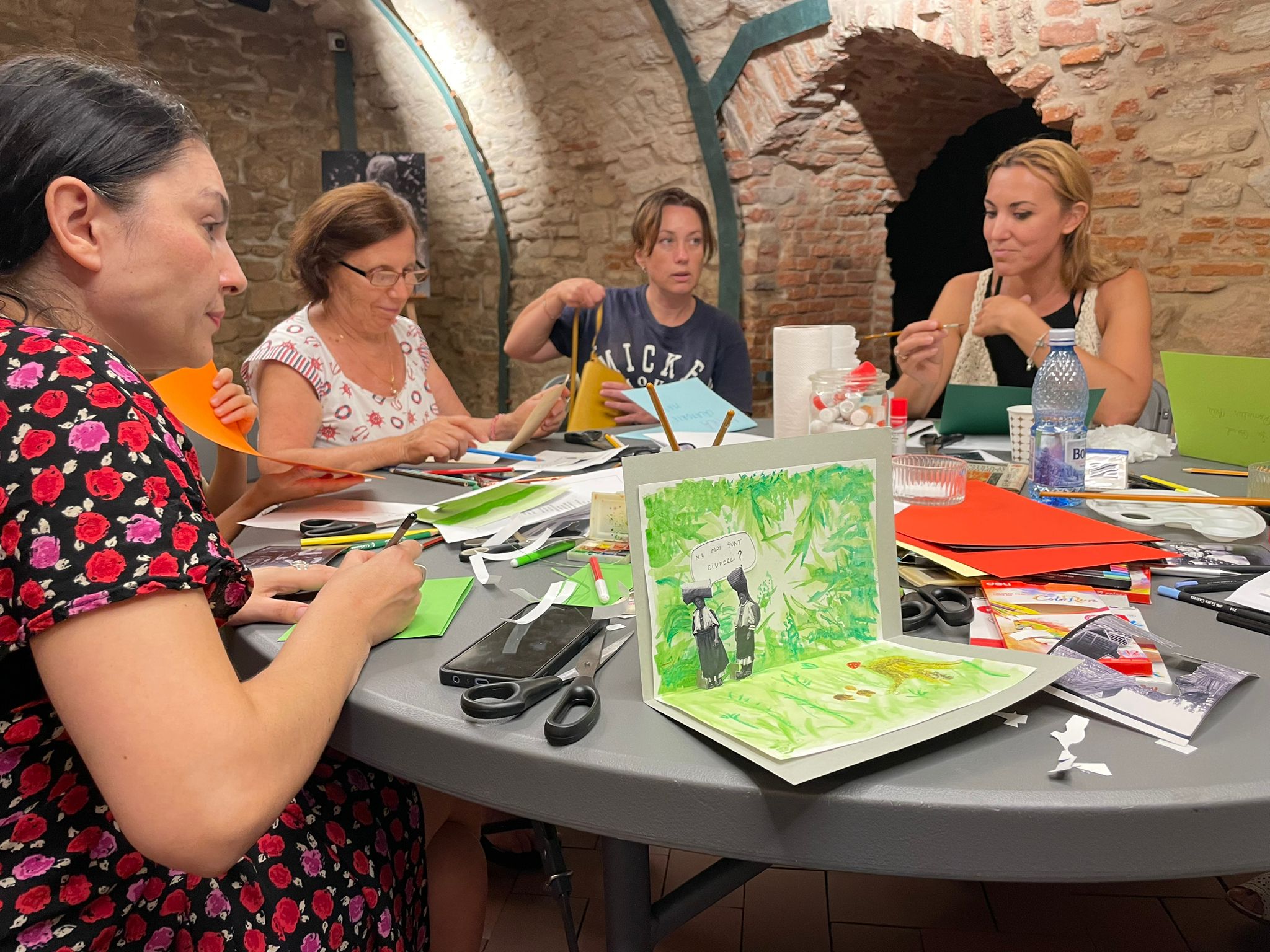
Pillot activities successfully put into practice
What is the most valuable thing about Erasmus+ cooperation projects? Strengthening international European cooperation, training and developing the competences of adult educators, or gaining new experiences and discovering good practice examples? These are all common and necessary parts of small and large collaborative projects. In addition, larger projects have a strong methodological feature, where partners jointly develop, and test new educational activities and methods.
For the PILLOT project, it’s the practical part - the preparation of testing activities and new educational workshops of integrated education linking language and cultural knowledge - that is the most valuable from the point of view of the PILLOT consortium.
Our key phase of the project - joint testing of new activities in all five countries involved, ran from June 2024, with the last of the testing sessions still running in January 2025. Testing was therefore in full swing for a full 8 months.
During early 2024, the partners jointly designed and developed 17 diverse activities in detail, which they then divided according to the possibilities and context of their institutions. Each participating organisation tried to put around 5 activities into practice. The consortium is formed by various lecturers and facilitators, each organisation also works with various target groups of learners, so it was valuable to compare how each one coped with the task of implementing new educational programs.
Our joint PILLOT project testing phase transnational analysis will be soon available, and published on this website and elsewhere online.
In total, we implemented an incredible 97 learning sessions together between June 2024 and January 2025. Each session explored one selected PILLOT activity and typically lasted 90 minutes. We managed to involve 689 adult learners with a migration and refugee background. However, there was also interest in participation from other foreigners from European countries.
We were very pleased to implement the testing phase, as we were able to offer our learners new opportunities for engagement, teaching new things, fostering their language skills and local cultural heritage knowledge. Our lecturers and educators tried new approaches and strengthened their teaching competencies. Some gained insight into new dimensions of strengthening students’ language skills, while others expanded their experience by introducing cultural heritage topics into their teaching.
Activities took place in a wide range of places and environments - urban spaces, libraries, museums, open-air museums, community centers, but also in more conventional classroom settings. Testing took place in Warsaw, Florence, Prague, Cluj and Luxembourg. The PILLOT team developed common evaluation procedures. Based on these, each local partner summarized their findings into a descriptive local analysis after the testing was completed. These analyses will soon be summarized in one document - a transnational report reflecting our practical project part.
Our joint PILLOT project testing phase transnational analysis will be soon available, and published on this website and elsewhere online. Stay tuned!